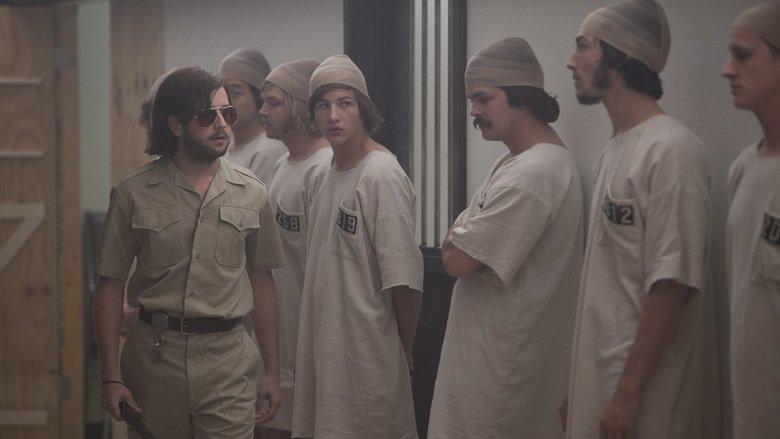
The Stanford Prison Experiment (Movie Review)
Dr. Philip Zimbardo is the man behind the most notorious psychology experiment maybe ever conducted. It's no wonder his work has now inspired three film iterations. The latest from director Kyle Patrick Alvarez aims to make audiences squirm in their seat with the portrayal of pure psychological torture. The Stanford Prison Experiment offers a raw, gritty, and perfectly performed depiction of the nation's most infamous studies.
The experiment/film follows Zimbardo's study to try and figure out what drives tension between prison guard and inmate while also keeping a watchful eye on the psychological effect that prison has on the incarcerated. In all, twenty-four male college students (as well as a few extras to supplement any who could not continue) were randomly assigned roles as guards or prisoners in a makeshift prison ward located within the Stanford psychology department. Zimbardo's expectations are exceeded quickly, but his study takes a tragic downward turn as the 'prisoners' mental stability rapidly declines and the 'guards' run rampant in their roles.
One of the more interesting aspects of Alvarez's film is that it explores the aspects of the experiment that the study itself was trying to break down. Essentially, when it came to the 'prisoners' Zimbardo wanted them to experience a loss of their identity and humanity, by assigning them numbers, not names, and having the guards berate and humiliate them. The rules of the experiment stipulated that the guards were not to physically harm anyone, but the nature of the experiment proved to take a deeper effect on some more than others, which quickly fractured the integrity of the entire process.
The experience of watching The Stanford Prison Experiment is one of theatrical bliss, but the kind of bliss that comes from the art of performance- less so of pure entertainment. Alvarez's film clocks in at 122 extremely uncomfortable minutes. All the while not a single moment is wasted as every performance has depth, pathos, and dramatic weight. Ezra Miller, who is making a career out of having the creepiest death glare imaginable, seems to have been born to convey a troubled youth with a fragile psyche. It's Michael Angarano and Billy Crudup that steal the show. Angarano plays one of the students assigned a position as a guard, goes by the moniker of John Wayne and oozes confidence in a frightening yet calculated manner. Crudup is fantastic as Zimbardo, a man determined to see his experiment through even if his moral compass is tells him to pull the plug. A handful of young up and comers fill out the cast, a who's who of young talent all in one location and lighting up the screen with charisma in spite of the ugliness that's actually on display.
The Stanford Prison Experiment is not your typical tried and true horror flick. However, as a genre adjacent thriller, the horrors perpetrated by and onto the college volunteers is a real-life dip into troubled and shocking waters. Alvarez proves to be a great talent behind the camera, but Tim Talbott's script deserves to be praised for it's portrayal of the dark depths within one of our history's most infamous experiments- especially once you forgive the ridiculous hair pieces and laughable pornstaches. The Stanford Prison Experiment should be sought out and watched- just don't expect any warm fuzzies to rock you to bed afterward.

